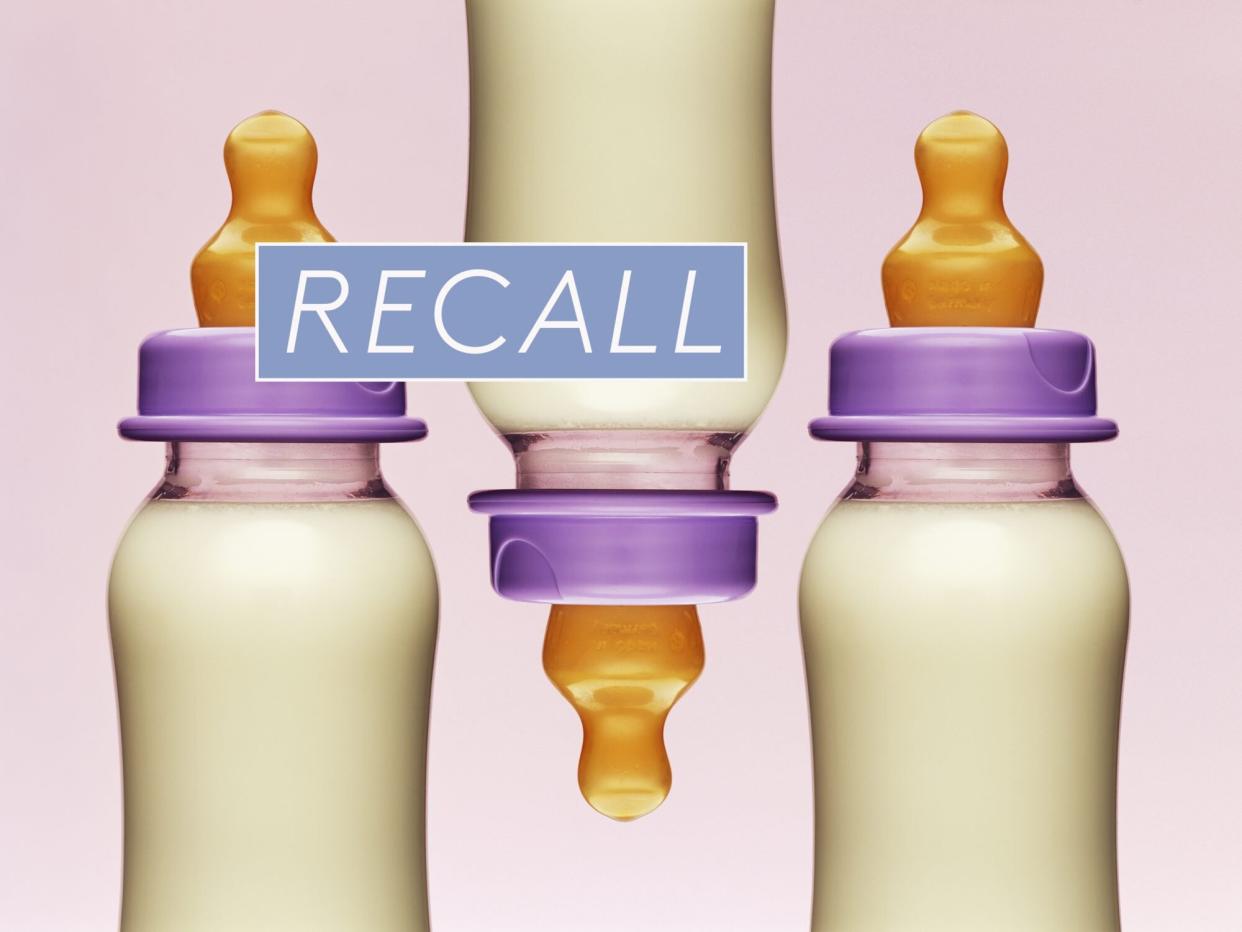Similac, Alimentum, and EleCare Powdered Infant Formulas Recalled Due to Harmful Bacteria

Jonathan Knowles/Getty Images
Several baby formula varieties are at the center of the latest food recall. Abbott is voluntarily recalling certain powder formulas, including Similac, Alimentum, and EleCare, due to the presence of harmful bacteria. The recalled items were manufactured at Abbott's Sturgis, Mich. facility, and the FDA is currently investigating consumer complaints regarding multiple Cronobacter sakazakii and Salmonella Newport infections.
Per an announcement from the FDA, all of the products subject to this recall have a multidigit number on the bottom of the container starting with the first two digits 22 through 37. The code on the container also contains K8, SH, or Z2, and the container has an expiration date of April 1, 2022, or after. The recalled formulas were distributed to retailers across the country, and were likely exported to other countries as well. The recall does not include liquid formula products or any metabolic deficiency nutrition formulas.
If you have any of the recalled products in your possession, dispose of them immediately. Additionally, parents and caregivers of infants who have used these products and are concerned about the health of their child, should contact their child's health care provider as soon as possible.
RELATED: Enoki Mushrooms Distributed Nationwide Recalled Due to Listeria Concerns
According to the FDA, Cronobacter sakazakii is commonly found in the environment and a variety of areas in the home. It is a pathogen that can cause fever, poor feeding, excessive crying or low energy, and can lead to sepsis or meningitis. Salmonella Newport bacteria can cause diarrhea, fever, and abdominal cramps.
"We know parents depend on us to provide them with the highest quality nutrition formulas," Joe Manning, executive vice president of nutritional products at Abbott, said in a statement. "We're taking this action so parents know they can trust us to meet our high standards, as well as theirs. We deeply regret the concern and inconvenience this situation will cause parents, caregivers, and health care professionals."
To date, this recall has been linked to four illnesses (three for Cronobacter and one for Salmonella) in Minnesota, Ohio, and Texas. All four infants were hospitalized, and Cronobacter may have contributed to a death in one case.
RELATED: This Is the Ingredient Most Likely To Give You Food Poisoning, Says a CDC Report
Frank Yiannas, FDA deputy commissioner for food policy and response, released his own statement reiterating that the FDA is "deeply concerned" about these reports of bacterial infections in infants, and is working to find the cause. "We want to reassure the public that we're working diligently with our partners to investigate complaints related to these products, which we recognize include infant formula produced at this facility, while we work to resolve this safety concern as quickly as possible," he said.
The agency has already initiated an onsite inspection at the Sturgis facility, and has obtained many environmental samples from the plant. Several of these samples have tested positive for Cronobacter sakazakii. According to Abbott, there is currently no evidence of Salmonella Newport at the facility, and no distributed product has tested positive for the presence of either of these bacteria.
RELATED: 7 Simple Ways to Avoid Food Poisoning
In light of this recall, the FDA is reminding parents and caregivers to handle and store powder formulas properly, and never dilute infant formula or make or feed homemade formula to little ones. If your regular formula is unavailable, the FDA suggests contacting your child's health care provider for recommendations regarding any changes in feeding practices.

